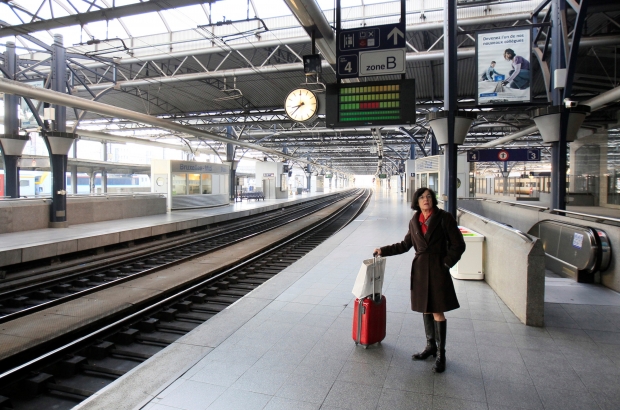- Daily & Weekly newsletters
- Buy & download The Bulletin
- Comment on our articles
Train strikes cost SNCB €10 million in last year
Striking rail workers have cost the rail authority SNCB a total of €10 million over the last year – “the cost of 160 full-time staff,” according to director Jo Cornu, speaking in the federal parliament yesterday.
“This is negative for the public’s perception and for the development of the company,” Cornu said during a hearing at which he and the CEO of rail infrastructure company Infrabel were present to report on their plans for the coming years.
Federal mobility minister Jacqueline Galant is asking for a 4% increase in productivity by 2019. According to Cornu, that will require “a very serious effort”: Between 2004 and 2013, productivity growth was 1% to 1.5%, while other European rail operators were growing by 1.5% to 2.5%.
The government is also asking for €663 million in cuts, for which Cornu suggested several options, including decreasing the amount SNCB pays to Infrabel and opening up ticket pricing to more commercial influence. Cornu considers the current cost of travelling by train in Belgium to be “ridiculously low”.
The two regional actions on Monday and Tuesday of this week brought the number of strike days this year to eight. Infrabel reports that 1,712 trains were cancelled and 478 re-routed. For the trains that did run, there were 205 hours of delays.
News also emerged this week that the two unions representing rail personnel each received a subsidy from SNCB of €5.4 million in 2012 and 2013, and an advance in 2014 of €3.7 million. The rail authority also pays the salaries of 73 representatives who work for the union full time. The funding comes from a subscription of €125 per member.
Photo: Yves Herman/Reuters/Corbis



















